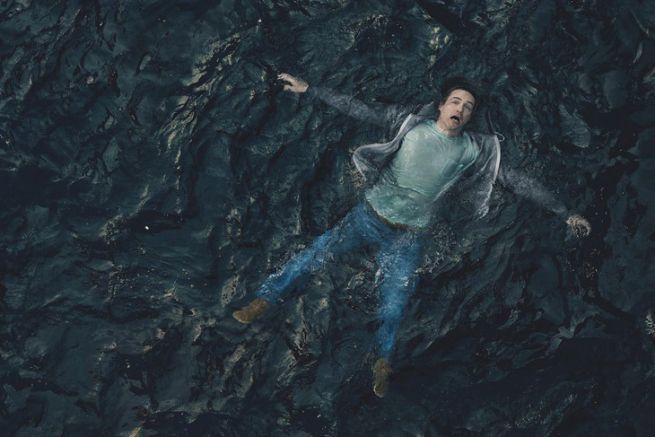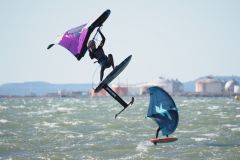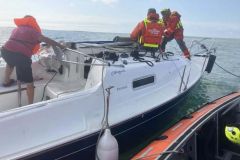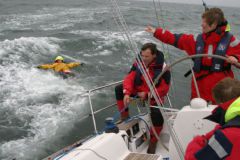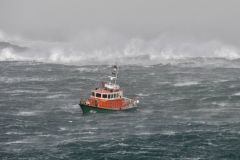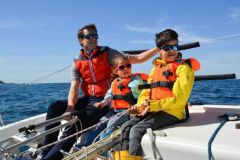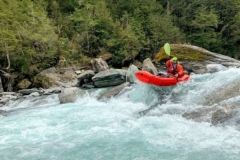The RNLI (Royal National Lifeboat Institution), which provides rescue at sea in the United Kingdom, has just commissioned a new study which reveals that people who fall overboard do not adopt the right reflexes. Indeed, 44% of the British would tend to swim if they fell into the water, "a potentially fatal instinct" explains the association. In the event of a fall into the sea, to save oneself from drowning, one should rather let oneself float and put oneself in the foetal position to combat hypothermia.
In all cases, whether you are on a boat or on any type of watercraft (canoe, kayak...) don't forget to wear your life jacket. It can save your life if you fall into the water and will help you float.
Cold shock, one of the culprits in the drowning..
In 2016, 162 people died on the British coast and 44% of them had not even planned to set foot in the water.
Sudden immersion in icy water instantly takes your breath away and triggers the instinctive and irrepressible reaction of swimming at all costs, which can quickly lead to drowning. The survey commissioned by the RNLI shows that more than half of the UK population would tend to follow this instinct and fight :
- 40% say their immediate reaction would be to swim
- 2% said they would panic
The others said that they:
- Would take their clothes off (4%)
- Would do nothing (3%)
- Hold their breath (1%)
- Wouldn't know what to do (4%).
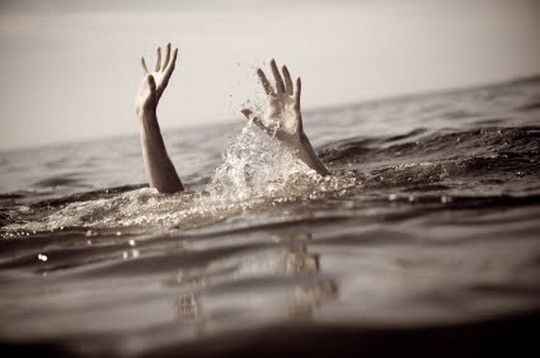
Mike Tipton, Professor of Human and Applied Physiology at the University of Portsmouth, explains :
"We often rely on our instincts, but our instinctive response to sudden immersion in cold water - panting, struggling and swimming - can potentially kill us. It increases the chance of getting water in your lungs, forces on your heart, cools your skin and flushes the air out of your clothes, which reduces buoyancy.
Although it is counter-intuitive, the best immediate plan of action in this situation is to fight your instincts and try to float, just for a short period of time. The effects of the cold pass quickly - between 60 and 90 seconds. Floating for this short period of time will allow you to regain controlled breathing and your chances of survival will increase dramatically.
Floating is not an easy thing in cold water, but most people can, and the air trapped in their clothes during the fall should help. Small exercises may be necessary to stay afloat. The recommended floating position is to lean back to keep your airway clear. Staying calm will also help maintain buoyancy. Some people find it helpful to make slight movements with their hands and feet to stay afloat. But the key is to do as little as possible until you regain control of your breathing. At this point, you have a better chance of avoiding drowning and surviving until you can swim to safety, get help, or continue to float until help arrives."
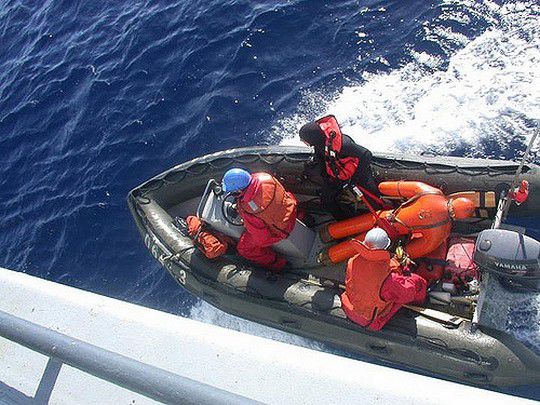
Wait for the cold to pass and let yourself float away
The drowning prevention campaign launched by the RNLI "Respect the Water" is entering its 4th year e year, an opportunity for the organization to give some safety tips again. The campaign is aimed specifically at men, who have accounted for more than ¾ of the deaths (77%) near the coast in the last five years, and 74% of deaths in 2016. The association reminds people who have fallen into the water to fight their instincts and to remember an important survival technique: float, waiting for the effects of the cold water to pass and for the breath to return, before trying to swim to safety or call for help. Overall, 23% of those surveyed (just under a quarter) mentioned several actions to take in the event of a fall at sea :
- 6% would know how to float
- 3% would be kept afloat
- 11% would remain calm
- 3% would look for something to keep them out of the water..
- 1% would get on their backs
- 1% would remain calm
- 1% would breathe calmly.
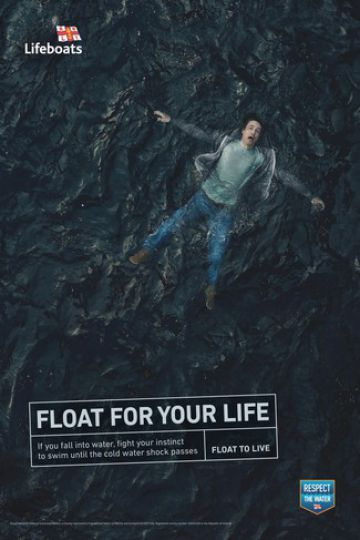

 /
/ 